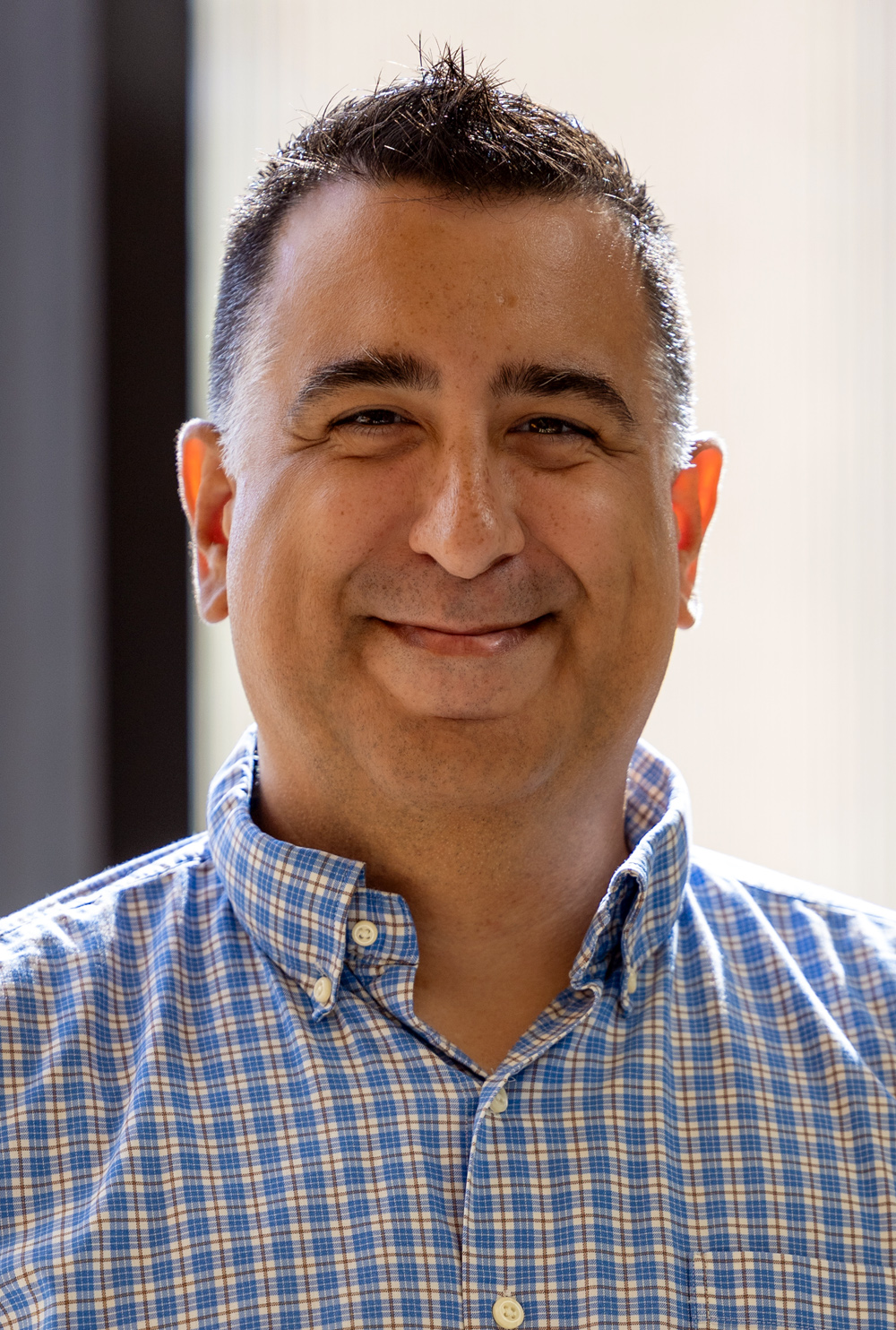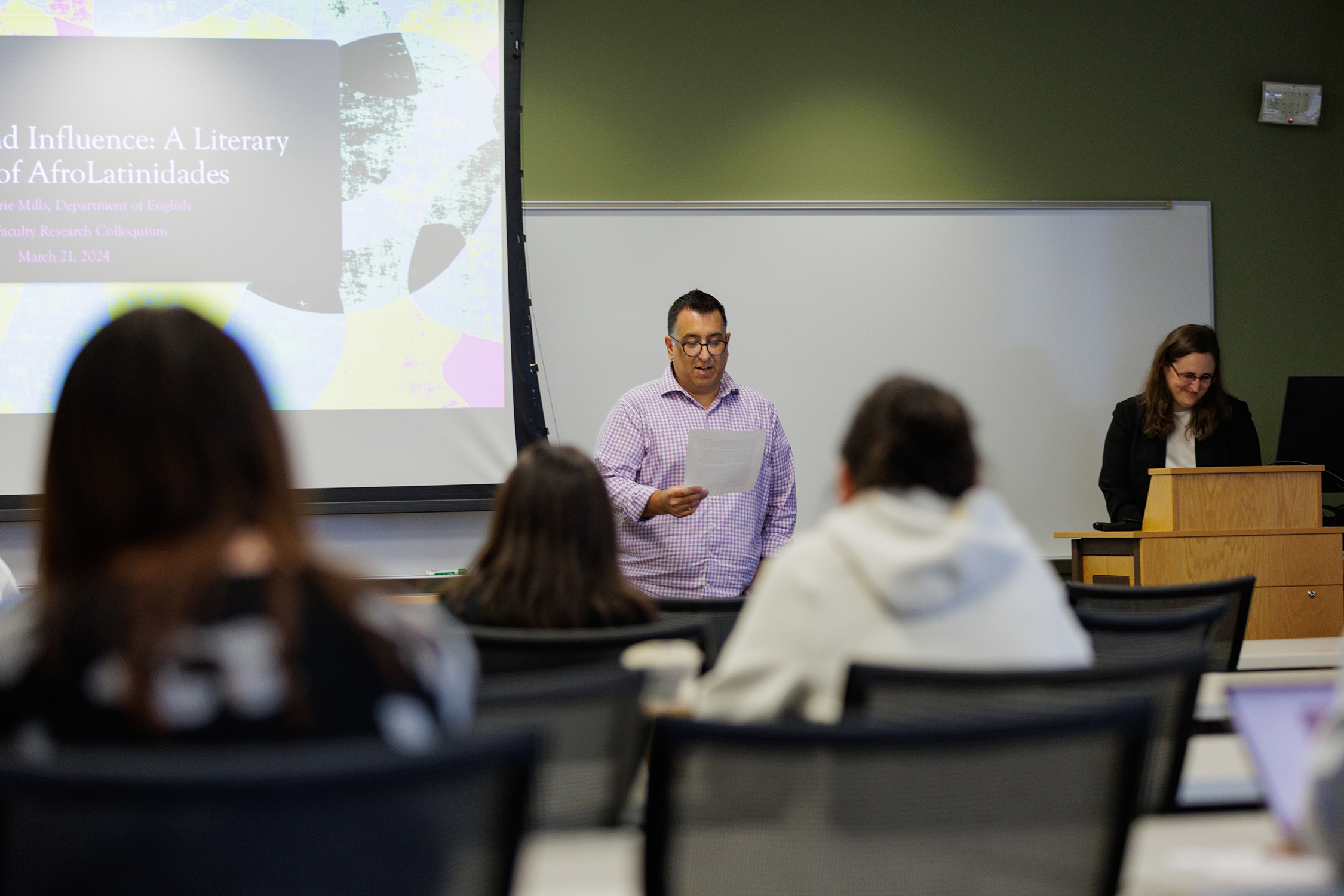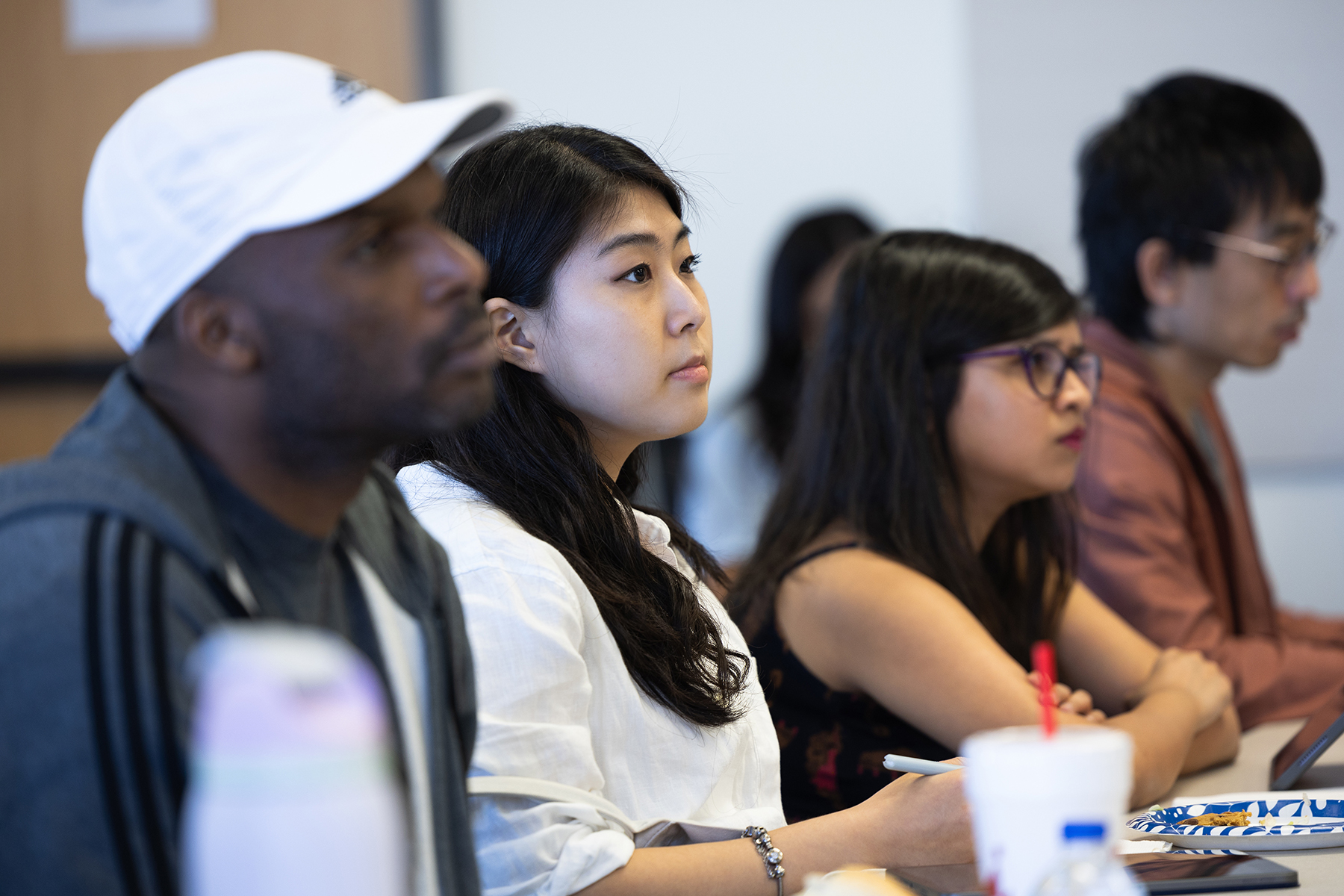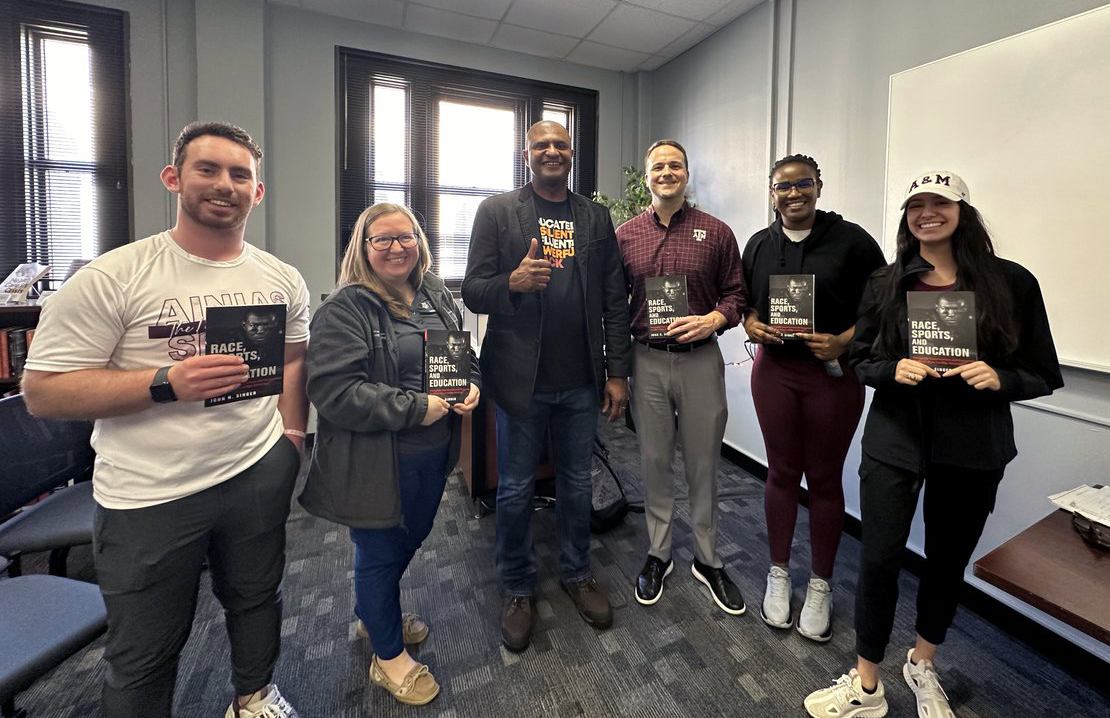
Dr. Darrel Wanzer-Serrano took over the helm of the Race and Ethnic Studies Institute (RESI), housed in the College of Arts and Sciences at Texas A&M University, in June 2023. Roughly one year later, he has led the institute to the most active and successful year in its history.
As director, one of Wanzer-Serrano’s first goals was to return to RESI’s original mission of being a research institute for the college and university, an objective squarely on the path to success, courtesy of newly implemented programs established to directly support faculty and student research related to race and ethnic studies within the college and beyond.
“By a lot of metrics, we’ve had the single most successful year that RESI has ever had in terms of being able to fulfill that part of our mission,” Wanzer-Serrano said. “I’m really excited and proud of what we’ve done. We've increased the visibility of RESI on campus and in the community, and we’ve increased RESI’s role in meeting A&M’s goals as a research-intensive Hispanic-serving institution.”
With his dedication and determination, the institute expanded its Interdisciplinary Faculty Seed Grants program, offering two awards per year. These grants, designed to support faculty who engage in interdisciplinary research, offer funding ranging from $5,000 to $10,000 for new projects.
RESI’s event co-sponsorship process also was enhanced under Wanzer-Serrano’s leadership through the creation of an application system to back research presentations and initiatives from other departments, including guest-speaker events. In addition, RESI introduced smaller research grants for both faculty and graduate students this past year and launched a faculty- and research-led working-group program. The initiative also provided numerous new direct undergraduate research grants to students.

Additionally, Wanzer-Serrano worked to update the RESI-Cantú Graduate Fellowship program, shifting its focus to emphasize doctoral candidate support. The number of annual awards for the fellowship was increased from two recipients to four.
During the last year, RESI awarded 14 faculty grants, 14 graduate student grants and two undergraduate grants, all while hosting more than half a dozen workshops and colloquia and co-sponsoring 11 events.
“Our grants have reached faculty in nearly two dozen different departments and units across nine schools and colleges,” Wanzer-Serrano said. “There’s a growing awareness of who we are and what we do, and with that comes a growing interest in terms of faculty and students wanting to be a part of our programming.”
Because of RESI’s growing popularity and the new opportunities that exist within the institute, it has seen an increase in both students and faculty, Wanzer-Serrano said. Affiliate programs have gone from a dozen faculty members to more than 50 across different departments, schools and colleges. Meanwhile, RESI’s new graduate affiliate program, which began in April, has already exceeded 30 members.
“It’s so rewarding to be able to help people make connections that they wouldn’t otherwise be able to make if we didn’t exist here,” Wanzer-Serrano said. “Our ability to connect people from different fields but with similar interests is extremely fulfilling.
“I think that’s one of the things that speaks to the unique value that RESI provides for the College of Arts and Sciences and the university as a whole.”

Since its founding in 1991, RESI has been dedicated to “fostering, celebrating and producing cutting-edge research related to race and ethnic studies” at Texas A&M. Originally established by Dr. Gail E. Thomas and Dr. Mitchell F. Rice, the institute has been evolving under various distinguished professors who have taken the mantle before Wanzer-Serrano.
“RESI has always provided a great opportunity to conduct brilliant, interdisciplinary conversations and approaches to issues related to racism, inequality and much more,” Wanzer-Serrano said. “A key part to our success this past year has been focusing on these important issues and being open to making adjustments to broaden the institute’s impact.”
Before he was named director of RESI, Wanzer-Serrano served as director for the University of Iowa’s Latino Studies Program prior to arriving at Texas A&M in 2020. As an associate professor and former associate head in the Department of Communication and Journalism, he also is a core faculty member in the Latino/a and Mexican American Studies program.
“Being RESI’s director has given me the space to really think through big problems related to structural racism, racial inequality, environmental justice, what it means to be a Hispanic-serving institution and more,” Wanzer-Serrano said. “As a result, it has really improved my own ability to do research and think about these research problems in different ways.”

While Wanzer-Serrano has already made drastic improvements to RESI’s reach and community-wide impact, his agenda for the next year involves additional stretch goals, such as reaching out to colleges and schools that aren’t yet connected with the institute and its many beneficial programs and also securing grant funding to support its own research initiatives.
“I’m really excited and proud of those advancements that we were able to make this year, and I’m looking forward to building off of those into next year,” he said.
In addition to making further strides in his second year as director, Wanzer-Serrano anticipates results from RESI-funded research projects becoming available in the coming year.

“At the end of the day, we’ve got a lot of great faculty and students who are conducting transformative research related to race and ethnic studies,” Wanzer-Serrano said. “They are making immediate and lasting contributions to how we understand these issues — not just in the bubble of Texas A&M University or the bubble of the state of Texas, but really with national and sometimes international consequences.
“I’m excited to see what the future brings with all of that, and just to be able to continue to expand the work that we’ve been doing through our additional outreach efforts.”
Learn more about RESI and its ongoing work, including upcoming events open to the public, through the institute’s website and social media channels.

